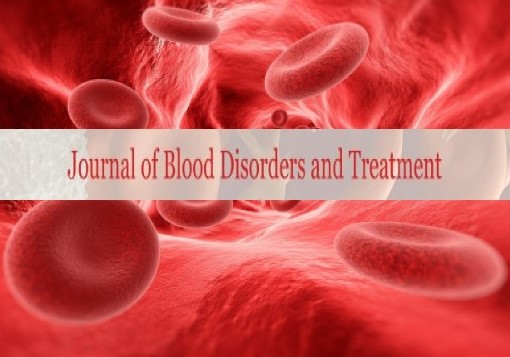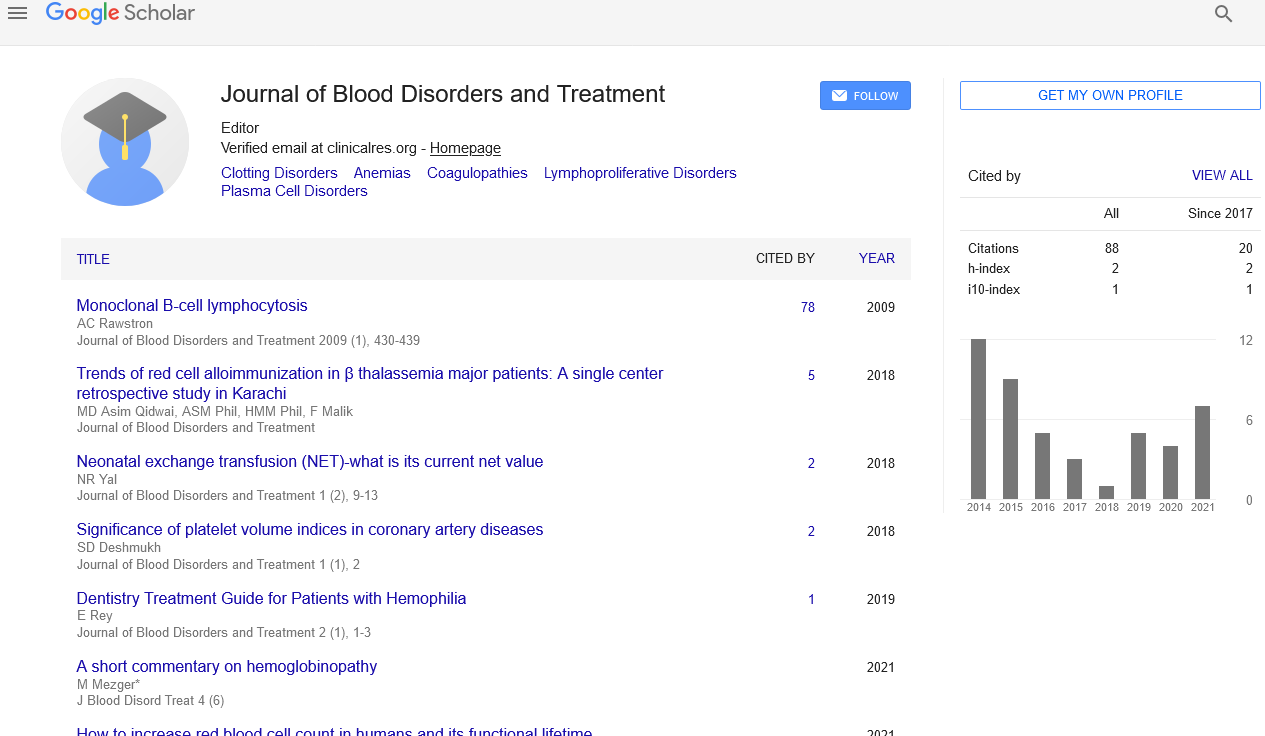
Sign up for email alert when new content gets added: Sign up
Glucose-6-phosphate dehydrogenase deficiency in jaundiced neonates and its relationship with severity of hyperbilirubinemia
10th World Hematology and Oncology Congress
October 22-23, 2018 Warsaw, Poland
Nazish Mazari, Umme Habiba and Naseem Akhter
University of Health Science, Pakistan University of Lahore, Pakistan Multan Medical & Dental College, Pakistan
ScientificTracks Abstracts: J Blood Disord Treat
Abstract :
Statement of the Problem: G6PD is a house keeping enzyme produced NADPH reduces free radicals and protects the body. Almost 7.5% of world population is carrier of G6PD deficiency. Neonatal jaundice is one of the manifestations of G6PD deficiency, observed in one third of newborns. Severe hyperbilirubinemia can cause kernicterus and even death. The purpose of this study is to determine the frequency of Glucose-6-Phosphate dehydrogenase deficiency in neonates with hyperbilirubinemia. Find the association between level of G6PD deficiency and severity of hyperbilirubinemia.
Method: We included 100 neonates with jaundice after excluding the other risk factors for hyperbilirubinemia. Initially screening for G6PD deficiency done with qualitative methods and deficient neonates were confirmed with quantitative method. History, examination and investigations like routine hematological investigations and total and direct bilirubin, Coombs test, G6PD qualitative and quantitative assay were done in all subjects.
Findings: In this study following finding were found 6% were G6PD deficient, in majority jaundice appeared on day third, maternal age was found to higher in deficient neonates. There is increased rate of complication and death was found in deficient group, bilirubin was higher and platelets were lower in deficient group that was statistically significant.
Conclusion: G6PD deficiency is an important cause of neonatal jaundice and severe hyperbilirubinemia in newborns. Hemolysis may not be the sole factor for the development of jaundice in G6PD deficient neonates. There is association between lower enzyme activity and hyperbilirubinemia. Early identification and treatment may reduce the mortality and morbidity.
Biography :
Nazish Mazari is an Assistant Professor in the Department of Hematology at University of Health Sciences Lahore, Punjab, Pakistan.
E-mail: nazishmazari@gmail.com




